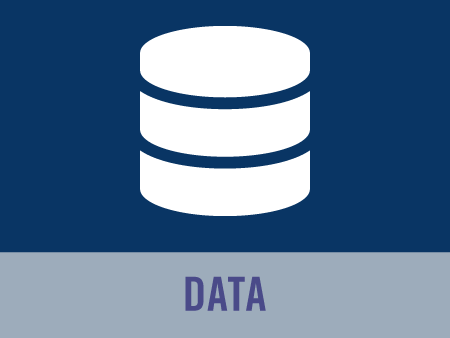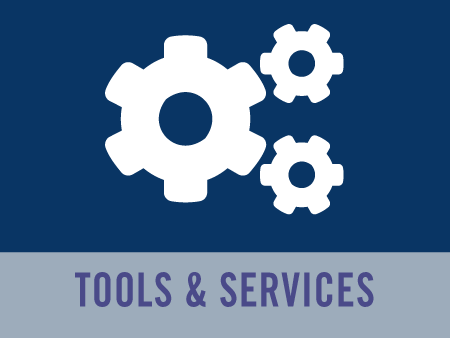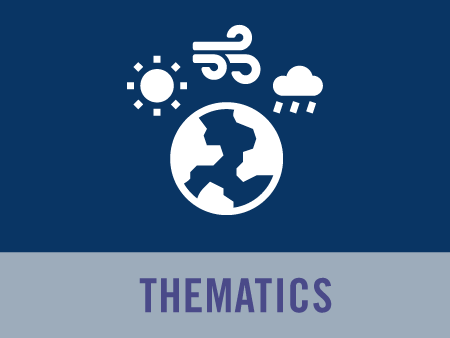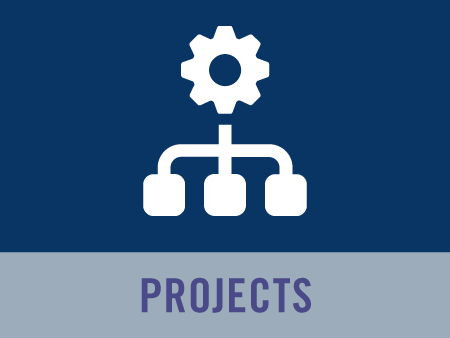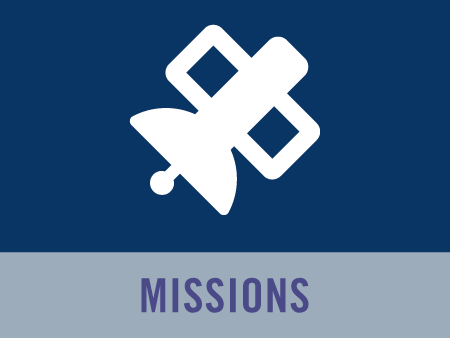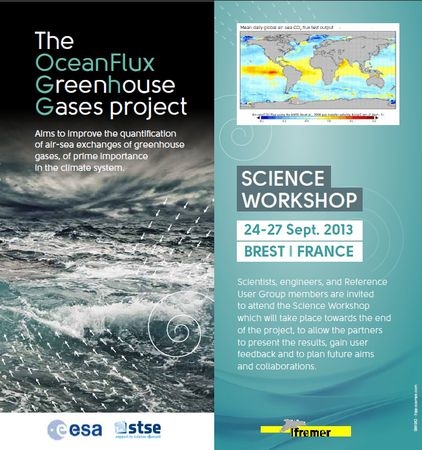The OceanFlux Greenhouse Gases project - Sept.2013
Air-sea Gas Flux Climatology; Progress and Future Prospects
IFREMER, Brest, France, 24-27 September 2013
The air-sea transfer of gases is a major part of the budget of carbon dioxide and several other radiatively-important gases. While there are other methods for constraining global and basin budgets of the air-sea transfer, we depend on an air-sea gas flux equation for regional and sub-seasonal resolution of fluxes across the surface of the world’s ocean.
That flux equation requires accurate values of transfer velocity, in addition to the concentrations of the dissolved gas in the upper ocean and in the lower atmosphere. This endeavour requires the maintenance of major observing systems (shipboard and satellite-borne) and deep understanding of
The European Space Agency (ESA) and the International Surface Ocean Lower Atmosphere Study (SOLAS) community came together in 2010 to support a new initiative in this area and the OceanFlux GHG project arose. At the same time, there have been enormous efforts internationally on calculating climatologies (e.g. here),strengthening and organising the measurement of dissolved gases (e.g. SOCAT) and exploring new methods of measuring and modelling the transfer processes and exchange coefficients.
We invite interested parties to an international workshop in France in September 2013. The OceanFlux GHG project will be presented. Renowned international scientists will present
overviews of key initiatives. We solicit oral and poster presentations from workshop participants. Together we will build a picture of the existing capability in air-sea gas flux climatology. More importantly, we will look ahead to new challenges and opportunities. ESA and other agencies are setting their own priorities and strategies. This workshop is an important opportunity to rationalize and explain the priorities of the scientific community.
Key aims will include
Identifying key challenges facing the air-sea gas flux community
- Maintaining the ship-based observing system
- Maintaining the marine earth observation capability
- Addressing remaining gaps in fundamental knowledge
- Understanding and addressing the full set of uncertainties
Identifying opportunities and setting priorities
- The requirements of the climate science and policy communities
- New earth observation technologies and missions
- New measurement techniques and opportunities for more autonomous measurements
- New modelling and statistical techniques
- The rapidly expanding capacity of cloud and other computing architecture
Please find here the first announcement of the workshop workshop_first_announcement_Jan2013





